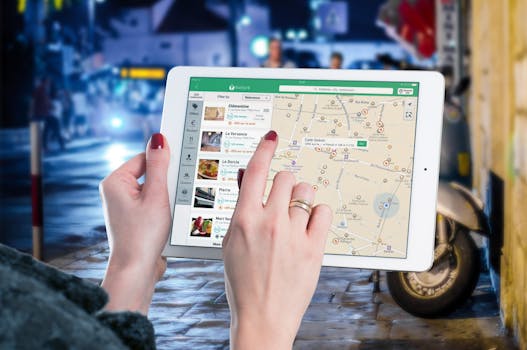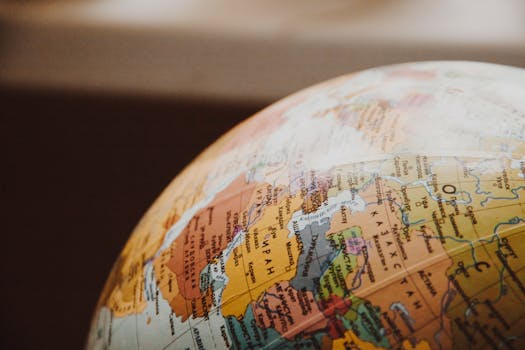Travel habits have undergone significant changes in recent years, shaped by global events, technological advancements, and shifting cultural priorities. Whether you’re a frequent traveler or planning your next getaway, understanding these trends can help you make informed decisions and adapt to the evolving landscape of travel. In this article, we’ll explore how travel habits have evolved, the key factors influencing them, and what the future holds for travelers in 2025.
How Travel Habits Have Evolved Post-Pandemic
The COVID-19 pandemic disrupted the travel industry like never before, but it also sparked a wave of transformation in how people approach travel. Here are some notable changes:
Health and Safety First
Travelers now prioritize destinations and accommodations that emphasize cleanliness, hygiene, and safety protocols. This shift has led to:
- Increased demand for contactless check-ins and digital room keys.
- A preference for private accommodations, such as vacation rentals, over crowded hotels.
- Greater interest in travel insurance that covers health-related disruptions.
Flexibility is Key
Refundable bookings and flexible travel plans have become the norm, as uncertainty remains a factor in travel planning. Airlines and hotels have responded by:
- Offering free cancellation or rescheduling options.
- Introducing flexible booking policies to accommodate last-minute changes.
- Providing real-time updates on travel restrictions and health guidelines.
Rise of Domestic Travel
With international travel restrictions, many turned to exploring their own countries, leading to a surge in domestic tourism. This trend has:
- Revitalized local economies and highlighted lesser-known destinations.
- Encouraged travelers to discover hidden gems in their own backyards.
- Promoted road trips and outdoor activities as safer alternatives to crowded tourist hotspots.
Key Factors Influencing Travel Habits in 2025
As we look ahead, several factors are shaping the way people travel. Let’s dive into the most impactful trends:
The Rise of Sustainable Travel Habits
Sustainability is no longer a niche concern—it’s a mainstream priority. Travelers are increasingly seeking eco-friendly options, such as:
- Green-Certified Hotels: Accommodations that adhere to sustainable practices, such as energy efficiency, waste reduction, and water conservation.
- Carbon-Neutral Transportation: Opting for trains, electric vehicles, or airlines that offer carbon offset programs.
- Responsible Tourism: Supporting local communities by choosing locally-owned businesses, respecting cultural norms, and minimizing environmental impact.
Technology’s Role in Shaping Travel Preferences
From AI-powered travel apps to virtual reality tours, technology is revolutionizing how we plan and experience travel. Key developments include:
- AI Travel Assistants: Tools like ChatGPT and Google Bard help travelers create personalized itineraries, recommend destinations, and even translate languages in real-time.
- Dynamic Pricing Algorithms: Apps like Hopper predict the best time to book flights and hotels, helping travelers save money.
- Virtual Reality (VR): VR allows travelers to “preview” destinations before booking, offering immersive experiences of hotels, attractions, and even entire cities.
Social Media’s Impact on Travel Decisions
Platforms like Instagram, TikTok, and Pinterest continue to influence travel habits by:
- Showcasing Visually Stunning Destinations: Viral posts and reels inspire travelers to visit picturesque locations, from Iceland’s waterfalls to Bali’s rice terraces.
- Highlighting Hidden Gems: Social media users often share off-the-beaten-path experiences, encouraging others to explore lesser-known destinations.
- Encouraging “Instagrammable” Moments: Travelers seek out photogenic spots and unique experiences to share with their followers.
How Millennials and Gen Z Differ in Travel Habits
Younger generations are redefining travel with their unique preferences:
Millennials: Experience Seekers
Millennials value experiences over material possessions, often prioritizing:
- Adventure Travel: Activities like hiking, scuba diving, and skydiving.
- Cultural Immersion: Staying in local homestays, attending cultural festivals, and learning new languages.
- Work-Life Balance: Combining work and leisure through “bleisure” trips.
Gen Z: Budget-Conscious and Tech-Savvy
Gen Z focuses on budget-friendly travel, sustainability, and digital connectivity. Their habits include:
- Budget Travel Hacks: Using apps and websites to find the best deals on flights, accommodations, and activities.
- Eco-Friendly Choices: Opting for sustainable travel options, such as eco-lodges and public transportation.
- Digital Connectivity: Staying connected through social media and travel apps, even while on the go.
The Future of Travel Habits: What to Expect in 2025
As we move into 2025, several trends are expected to dominate the travel landscape:
Bleisure Travel
Combining business and leisure travel is becoming increasingly popular, especially among remote workers. Key features include:
- Extended stays in destinations to explore after work hours.
- Employers offering flexible work arrangements to accommodate travel.
- A rise in coworking spaces and business-friendly accommodations.
Slow Travel
Travelers are opting for longer stays in fewer destinations to fully immerse themselves in local cultures. This trend emphasizes:
- Quality Over Quantity: Spending more time in one place to truly experience its culture, cuisine, and lifestyle.
- Sustainable Practices: Reducing carbon footprints by minimizing flights and supporting local economies.
- Mindful Travel: Focusing on relaxation, self-discovery, and meaningful connections.
Personalization
AI and data analytics will enable hyper-personalized travel experiences tailored to individual preferences. Examples include:
- Customized itineraries based on past travel behavior and interests.
- Real-time recommendations for activities, restaurants, and attractions.
- Tailored travel packages that cater to specific needs, such as family-friendly or luxury options.
Conclusion: Adapting to the New Era of Travel
The way we travel is constantly evolving, driven by technology, sustainability, and changing societal values. By staying informed about these trends, you can make smarter travel decisions and enjoy more meaningful experiences. Whether you’re a solo adventurer, a family vacationer, or a digital nomad, understanding modern travel habits is the key to unlocking unforgettable journeys in 2025 and beyond.







